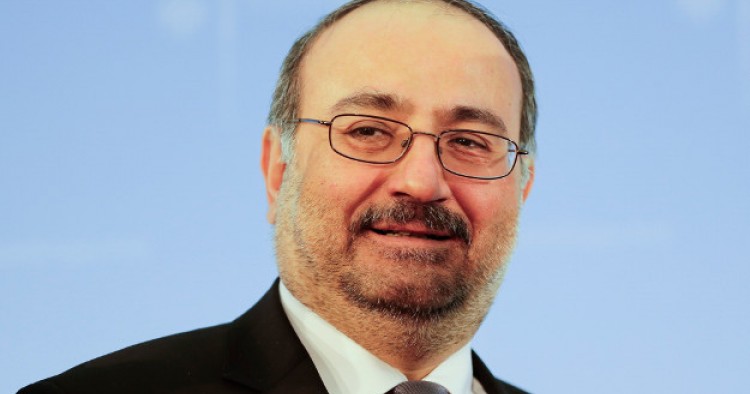President Barack Obama has notoriously disparaged the moderate opposition as "farmers or dentists or maybe some radio reporters who didn't have a lot of experience fighting." The key question about the Syrian opposition is not whether it can fight — in fact many of its cadres are former Syrian army soldiers — but whether it can govern.
Based on a recent visit to Gaziantep — where the Syrian Interim Government (SIG) and many Syrian civil society organizations are headquartered — I believe the Syrian opposition could govern effectively in a part of Syria, if it were adequately protected from ground, artillery and air assault. Syrian opposition fighters would need to provide security on the ground, while the anti-ISIS Coalition would protect any designated area from regime airstrikes and barrel bombs.
There are three possible areas in Syria where a protected and liberated zone might be established: in the south along the Jordanian border and the "green line" that separates the Israeli-occupied Golan Heights from Syria; near Raqqa in eastern Syria; and/or in northern Syria along the Turkish border.
What reasons are there to believe the opposition could govern one or more of these areas?
First, Syrians in many opposition-controlled areas have already established forms of governance, including more than 400 local administrative councils, plus nine at the provincial level. The councils provide forums for dialogue and deliver public services, such as emergency and humanitarian relief, electricity, water and sanitation to millions of people. Some collect taxes and fees. Some have even established police forces and courts. Deraa governorate in the south boasts 76 local councils. Aleppo governorate in the north has some of the most active and well-structured.
What the local councils lack is adequate funding and strong connections to the SIG, which is trying to standardize electoral processes and other procedures. According to its Minister of Local Administration, the SIG needs $42 million to pay their salaries and $300 million to fund their priority efforts per year. Funding the local councils through the SIG would enhance its stature and legitimacy, giving it traction within Syria that it currently lacks.
Second, Western funding over the last four years has generated a wide array of externally-based but Syrian-staffed nongovernmental organizations. Some of these are elite organizations, run by well-educated Syrians who may lack the grassroots support the local administrative councils enjoy. However, others are managing to sponsor intercommunal dialogues, negotiating the release of kidnap victims, organizing women to prevent rape, discovering ways of enhancing livelihoods, providing first responders and ensuring respect for human rights.
Third, the local administrative councils and nongovernmental organizations are receiving significant support from Western donors and meeting tough requirements for accountability and transparency. The Assistance Coordination Unit, a quasi-nongovernmental organization established before the SIG, handled $200 million in Western assistance in 2014 and passed a tough international audit with flying colors. The Coalition-sponsored Syrian Recovery Trust Fund is finding useful ways to spend its $90 million in mostly Western contributions, often through the local councils.
Fourth, the SIG has begun to provide important services. The education ministry has administered high school examinations in opposition-controlled areas of Syria and among refugees for several years. It runs schools staffed by 25,000 volunteer teachers. The SIG health ministry has conducted a successful polio vaccination campaign. In November, the SIG will open a Free Syrian University with a faculty of about 160 professors and upwards of 4,000 students.
No one can prove they can govern effectively until trying to do it. But we have ample indications that the Syrian opposition, despite its many weaknesses, could at least begin to govern inside Syria if liberated areas can be protected from attack.
The Middle East Institute (MEI) is an independent, non-partisan, non-for-profit, educational organization. It does not engage in advocacy and its scholars’ opinions are their own. MEI welcomes financial donations, but retains sole editorial control over its work and its publications reflect only the authors’ views. For a listing of MEI donors, please click here.












